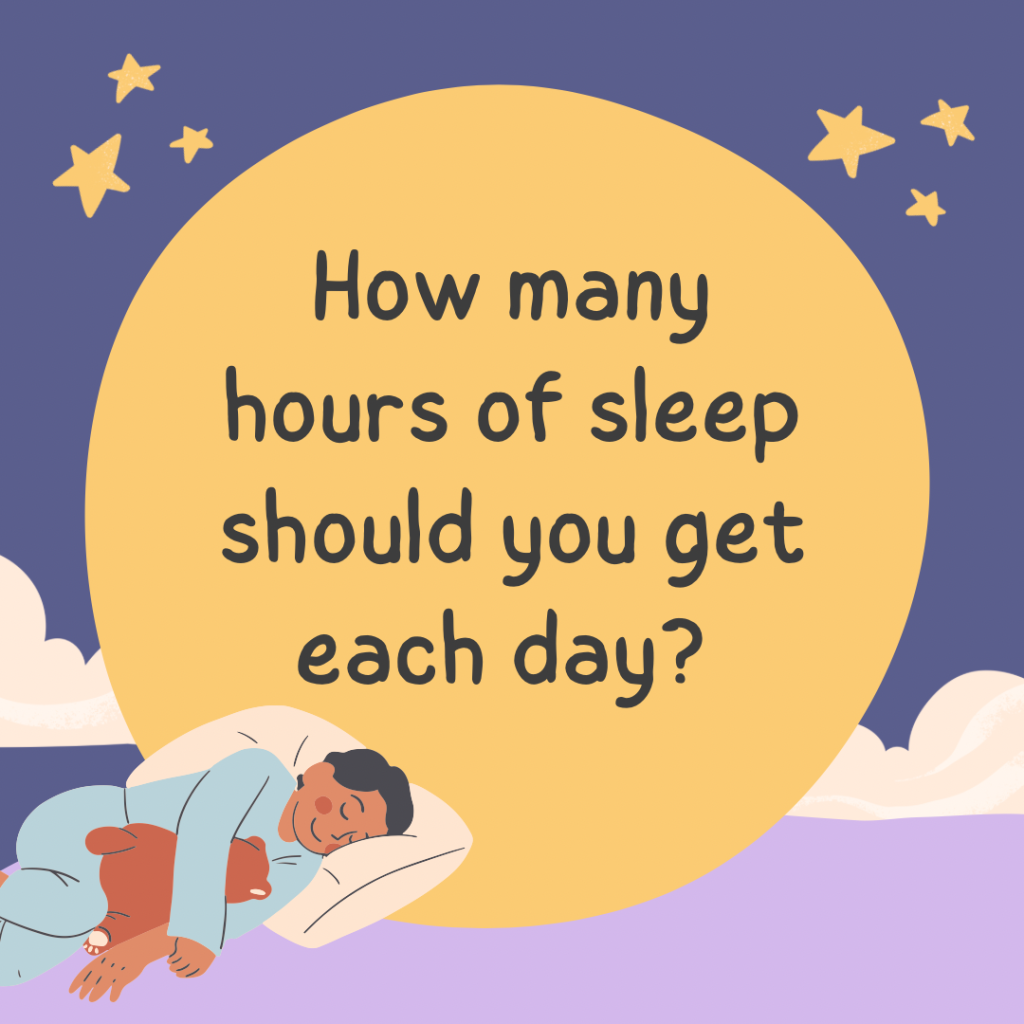Sleep plays an important role in allowing our bodies to reset and recover from the day.
The benefits of sleep:
- Increasing our energy levels.
- Improving our concentration and storing long-term memory.
- Increasing our heart health by reducing the workload of our heart as our heart rate and blood pressure falls.
- Encourages the digestion of fats.
- Regulates our hormone production such as cortisol and melatonin for our sleep-wake cycle and insulin for the storage of sugar.
- Boosting our immune system, protecting us from catching colds frequently.
How much is enough?

Adults should aim for around 7-9 hours of sleep every day, and teenagers between 8-10 hours.
What happens if we don’t get enough?
When we regularly don’t get enough sleep we are at an increased risk of developing long-term health problems such as high blood pressure, coronary heart disease, stroke and obesity (due to higher hunger cues and cravings for fatty, sweet and salty foods), as well as an increase in cognitive issues such as difficulty concentrating, performing tasks, thinking clearly and storing memory.
How can we improve our sleep?
- Make a routine and stick to it: go to bed and wake up around the same time every day.
- Regular physical activity.
- Minimise screen time for at least an hour before going to bed.
- Avoid alcohol, caffeine, smoking or eating large meals in the 4-6 hours prior to going to bed.
- Avoid long naps during the day.
- If you’re struggling to fall asleep once in bed, get up and go to another room until you feel sleepy and go back to bed.
Find more of our health tips here.
Book an appointment with us here or call us on 9651 5559.
Sources:
Government of South Australia. 2022. Getting enough sleep. https://www.sahealth.sa.gov.au/wps/wcm/connect/public+content/sa+health+internet/healthy+living/healthy+sleep/getting+enough+sleep
National Heart, Lung, and Blood Institute. 2022. How sleep works. https://www.nhlbi.nih.gov/health/sleep/why-sleep-important
